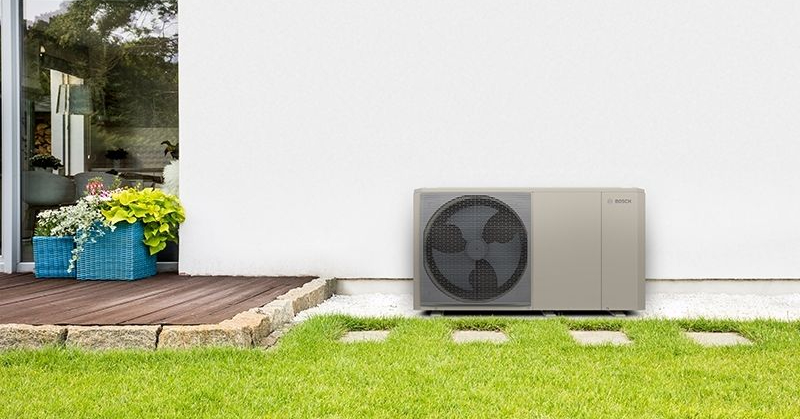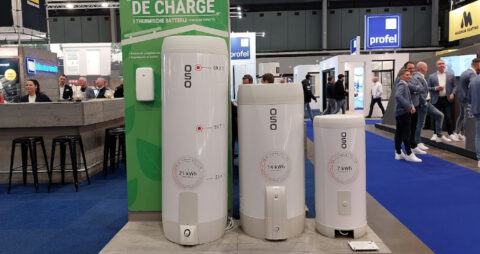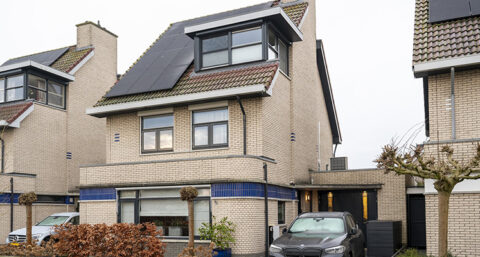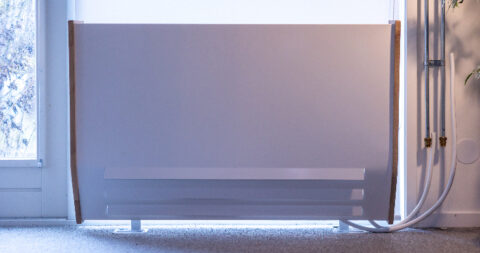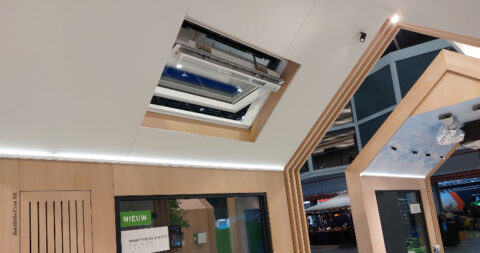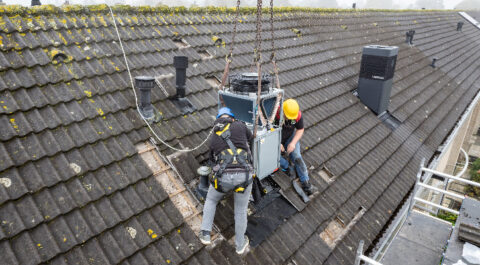There is a perception that the switch to all-electric heat pumps is creating grid congestion in neighborhoods. Because these heat pumps are seen as energy guzzlers. But research shows that in many cases installing a heat pump system is actually an important solution to reduce grid congestion.
Using the right heat pump in homes requires an electrical power consumption of about 1.75 kW. This is much less than an electric stove, a boiling water tap or an electric car charging station. But more importantly, the modern heat pump is controllable and therefore has a gradual consumption profile. A heat pump system with a boiler provides hot water heating when the electrical grid has plenty of room or when the price is low or even negative. Craftsmanship and proper system selection in heating mode, on the contrary, ensure that, even at outdoor temperatures of -10 degrees Celsius, very little power consumption is required. By using the right starting points, much more is possible than we currently assume. Various reports with practical data from heat pumps provide the substantiation for this. This is what Alklima Mitsubishi Electric argues in a white paper they have released.
Buffer capacity
Expansion of the electricity grid is indeed necessary, the supplier says. But stopping sustainability until grid congestion is addressed is not necessary for anything. In fact, making homes more sustainable via an all-electric heat pump system can be done without much impact on the electricity infrastructure. In fact, at many times the heat pump actually helps us reduce the problems. In doing so, however, construction and installation professionals must observe a few conditions.
"Good cohesion between the delivery system, the control system and the heat pump is an important starting point. Whereby a good heat pump, even at low outdoor temperatures, does not need support from an electric element. Buffer capacity is also an important measure for preventing peak loads and makes an essential contribution to congestion management. Heat pumps play an important role here. When generating renewable electricity, heat pumps can convert surplus renewable electricity into thermal energy in the boiler. The heat pump can also heat up a home at a favorable time of day so that the heat pump can remain off at peak times - for example, between 5 p.m. and 6 p.m.," says Rudy Grevers, All-Electric housing construction booster at Alklima.
Limited influence heat pumps
When you look at the power consumption of the various electrical appliances in and around the home, the heat pump appears to make only a limited contribution to a home's load. For example, research by Natuur & Milieu shows that heat pumps in homes are responsible for only 1% of total electricity consumption. Moreover, total electricity use in our country has remained constant for years. Investment in the electrical infrastructure in existing neighborhoods is therefore unrelated to the desire to install heat pumps. Grevers: "The bottleneck occurs because we want to make more use of our electrical infrastructure during a certain time of day (for example, between 5 p.m. and 6 p.m.). Compare it to traffic jams, which also occur at peak times. Together we should stay away from the rush hour whenever possible. A heat pump can fulfil this very well."
"The matching of energy supply and demand is, going forward, the main concern. In that respect, it is good news that the growth of renewable energy from solar and wind is much faster than that of additional installed heat pumps. Of course, heat pumps require more electricity in colder conditions compared to in summer. Yet in winter, renewable electricity generation far exceeds the total electricity use of all heat pumps. Tap water preparation can also cause a peak in electricity demand, but that heating - provided the system has a boiler - will be spread throughout the day," Grevers says.
Hybrid heat pumps have negative impact
In fact, Alklima Mitsubishi Electric states that hybrid heat pumps, contrary to popular belief, are not a solution to grid congestion. Hybrid heat pumps actually cause sharp spikes in many cases. This is because many hybrid heat pumps are controlled by outdoor temperature. That means that in a neighborhood, they often switch on simultaneously, creating a peak load. "If you still need a hybrid system, for example for architectural reasons or lack of space, it is better to choose an all-electric ready heat pump," Grevers believes. "The big advantage of this variant is that after a hybrid situation (boiler with heat pump) you can move on to all-electric. For example, if net-metering is abolished, there will be an incentive to use your own generated solar energy to charge the boiler with hot water, for example, so-called thermal buffering. A classic hybrid system does not offer this possibility and is therefore really a short-term solution."

